
Andrea Csáki
Microfludic Synthesis of plasmonic Nanoparticles for Sensing Applications
EurAsian Conference of Nanophotonics (EACON) is a biennial conference organized by Leibniz IPHT under the framework of the event series “Biophotonics4Future”. EACON aims at promoting the collaboration in nanophotonics among interdisciplinary leading scientists from European and Asian countries.
The partner countries of EACON 2020 are Germany and Taiwan. EACON 2020 promotes interdisciplinary collaboration between outstanding scientists in the fields of chemistry, nanomaterials, nanotechnologies, and photonics. Leading scientists will come together virtually and present the most recent advances in their research and establish collaborations with international partners. About 30 talks will be given by invited speakers and participants will have the chance to take part in our virtual poster session. Virtual meeting rooms will be offered to foster discussion and interaction between the attendees.
Key Facts
• Date: October 5-7, 2020
• Virtual Conference only
• Partner country: Taiwan
• 26 scientific talks
• Poster session
• Networking opportunities
The theme of EACON 2020: Chemistry, Materials, and Nanotechnologies for Nanophotonics
Light-matter interaction can be manipulated by controlling the condition of light and the properties of matter. Advances in modern chemistry, material sciences and nanotechnologies offer the opportunity to create artificial matters with atomic to nanometer-scale features, which enable optical responses beyond the capability of natural materials. To understand the fundamentals and explore new application opportunities of light-matter interaction, interdisciplinary scientists must exchange their knowledge and join their efforts to overcome current technical barriers. During EACON 2020, leading scientists in chemistry, advanced materials, and nanooptics will present their latest research advances and establish collaboration with interdisciplinary and international collaborators to address the challenges in Nanophotonics.
At the Leibniz Institute of Photonic Technology (Leibniz IPHT) in Jena, scientists use light to find solutions to questions and urgent problems in the fields of health, environment, medicine and safety. Under the motto “Photonics for Life”, they research light-based technologies that make our lives safer, healthier and cleaner. Especially in the field of optical health technologies, Leibniz IPHT, in cooperation with partners from research and industry, is specifically promoting translation: the transfer of research results into applicable solutions – from Ideas to Instruments.
Leibniz Institute of Photonic Technology
Albert-Einstein-Str. 9
07745 Jena | Germany
Poster No. 1
Chao-Yu (Peter) Chen
National Cheng Kung University | Tainan, Taiwan
Photovoltaic and Optical Characteristics of Layered and 3D mixed Halide Perovskites
Poster No. 2
Yi-Ju Chen
Leibniz Institute of Photonic Technology | Jena, Germany
Plasmonic Doppler gratings for Hydrogen sensing and coking detection
Poster No. 3
Kao Chen-Rui
Academia Sinica | Taipei, Taiwan
Crucial Influence in Catalytic Performance by Atom-Level Manipulation on Surface of Bimetallic AuPd Nanoicosahedra
Poster No. 4
Sarah Jasmin Finkelmeyer
Leibniz Institute of Photonic Technology | Jena, Germany
Supramolecular structure engineering for fine-tuned optoelectronic properties
Poster No. 5
Shiang-Yu Huang
Leibniz Institute of Photonic Technology | Jena, Germany
Chiral Structured Illumination Microscopy
Poster No. 6
Ching-Wen Liao
Academia Sinica | Taipei, Taiwan
Synthesis of Free-Standing Spinel FeCo2S4 Nanoplates toward Improvement of Electrocatalytic Oxygen Evolution from Water Splitting
Poster No. 7
Zhan-Hong Lin
Leibniz Institute of Photonic Technology | Jena, Germany
Self-assembly of Photo-Switchable Diarylethenes for Optical Microresonator and Arrays
Poster No. 8
Chi-How Peng
National Tsing Hua University | Hsinchu, Taiwan
Highly efficient gene release in spatiotemporal precision approached by light and pH dual responsive copolymers
Poster No. 9
Heng-Liang Wu
National Taiwan University | Taipei, Taiwan
Controlling the Oxidation State of Cu Electrode and Reaction Intermediates for Electrochemical CO 2 Reduction to Ethylene
Poster No. 10
Mina Yesilyurt
Leibniz Institute of Photonic Technology | Jena, Germany
DNA-origami assisted directional plasmonic nanoantenna
The program may be subject to change.
German Time / Taiwanese Time
08:10 am / 02:10 pm
Opening Remarks
Juergen Popp & Jer-Shing Huang (Leibniz IPHT)
08:20 am / 02:20 pm
Session 1) Plasmonics, Metamaterials, 2D materials (Chair: Jer-Shing Huang)
Controlled growth of transition metal dichalcogenide monolayers for application in nanoelectronic and nanophotonic devices
Andrey Turchanin (University Jena)
Plasmonic Metasurface-Enhanced Linear and Nonlinear Processes in Two-Dimensional Semiconductors
Shangjr (Felix) Gwo (Academia Sinica)
Integration of two-dimensional materials in optical systems for nonlinear optics, sensing, and single photon source
Falk Eilenberger (Fraunhofer IOF)
The Nature of van der Waals Epitaxy
Shih-Yen Lin (Academia Sinica)
09:20 am / 03:20 pm
Coffee Break
09:30 am / 03:30 pm
Session 2) Plasmonics, Metamaterials, 2D materials (Chair: Falk Eilenberger)
Empowering Bilayer MoS2 by Engineered Plasmonic Nanostructures for Optoelectronic Applications
Ta-Jen Yen (National Tsing Hua University)
Nonlinear frequency conversion in nanostructured optical systems for application in quantum photonics
Frank Setzpfandt (University Jena)
Controlling Light-matter Interactions at Nanoscale with Plasmonics: From Spontaneous Emission to Lasing
Yu-Jung Lu (Academia Sinica)
Label-free sensing for biomedical diagnostics
Ondrej Stranik (Leibniz IPHT)
10:30 am / 04:30 pm
Virtual Poster Session
German Time / Taiwanese Time
08:10 am / 02:10 pm
Session 3) Smart Systems (Chair: Ta-Jen Yen)
Microfludic Synthesis of plasmonic Nanoparticles for Sensing Applications
Andrea Csáki (Leibniz IPHT)
Bridging Energy and Chemistry via Nanoarchitectonic Engineering at Atomic Scale
Chung-Hong Kuo (Academia Sinica)
Exploiting wave optics for infrared spectroscopy
Thomas Mayerhöfer (Leibniz IPHT)
Kirigami-based soft robots with light-responsive properties
Yu-Chieh Cheng (National Taipei University of Technology)
Nano-object detection in microstructure fibers
Markus A. Schmidt (Leibniz IPHT)
09:25 am / 03:25 pm
Coffee Break
09:35 am / 03:35 pm
Session 4) Advanced Materials (Chair: Chu-Hong Kuo)
Toward a universal polymeric material for electrode buffer layers in organic optoelectronics
Yian Tai (Taipei Representative Office in Federal Republic of Germany, and Representative Office of MOST, Taiwan)
Supramolecular Control of Optical and Electronical Properties of Two-Dimensional Dye Layers
Martin Presselt (Leibniz-IPHT)
Cobalt mediated controlled/living radical polymerization: from mechanism understanding to materials application
Chi-How Peng (National Tsing Hua University)
Molecular self-assembly methodology for rational construction of metallosupramolecules with high structural complexity
Yi-Tsu Chan (National Taiwan University)
Controlling the Oxidation State of Cu Electrode and Reaction Intermediates for Electrochemical CO2 Reduction to Ethylene
Heng-Liang Wu (National Taiwan University)
10:50 am / 04:50 pm
Virtual Poster Session
German Time / Taiwanese Time
08:10 am / 02:10 pm
Session 5) Advanced Materials (Chair: Martin Presselt)
Functional Thin Films for Photonic Applications
Jonathan Plentz (Leibniz IPHT)
Carbodicarbene, Carbogenic Maverick, Not a Moderate!
Tiow-Gan Ong (Academia Sinica)
Quantum confined semiconductor nanostructures in light-driven catalysis
Maria Wächtler (Leibniz IPHT)
Silicon Nanostructures from Hydrogen Generation to Nanomedicine
Vladimir Sivakov (Leibniz IPHT)
09:10 am / 03:10 pm
Coffee Break
09:20 am / 03:20 pm
Session 6) Ultra-Imaging (Chair: Tiow-Gan Ong)
New Environment Sensitive Fluorophores with Color-Tailored Emission: In Vivo Monitoring of Carbonic Anhydrases Expression on Growth of Larval Zebrafish
Po-Chiao Lin (National Sun Yat-sen University)
Plasmon Enhanced Probe Spectroscopies – Structural Investigation of Nanoscale Objects
Volker Deckert (Friedrich Schiller University Jena)
Near Field Spectroscopic Imaging: from Hard to Soft Materials
Chi Chen (Academia Sinica)
Direct Observation of Reaction Intermediates of Metal-based Therapeutic Agents in Single Living Cell Using TERS
Kien-Voon Kong (National Taiwan University)
10:20 am / 04:20 pm
Closing Remarks
Juergen Popp & Jer-Shing Huang (Leibniz IPHT)

Microfludic Synthesis of plasmonic Nanoparticles for Sensing Applications

Controlled growth of transition metal dichalcogenide monolayers for applications in nanoelectronic and nanophotonic devices

Near Field Spectroscopic Imaging: from Hard to Soft Materials
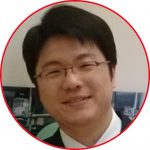
Cobalt mediated controlled/living radical polymerization: from mechanism understanding to materials application

Bridging Energy and Chemistry via Nanoarchitectonic Engineering at Atomic Scale

Integration of two-dimensional materials in optical systems for nonlinear optics, sensing, and single photon sources

Nonlinear frequency conversion in nanostructured optical systems for application in quantum photonics
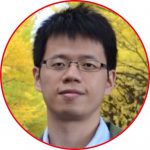
Controlling the Oxidation State of Cu Electrode and Reaction Intermediates for Electrochemical CO2 Reduction to Ethylene

Functional Thin Films for Photonic Applications

Direct Observation of Reaction Intermediates of Metal-based Therapeutic Agents in Single Living Cell Using TERS
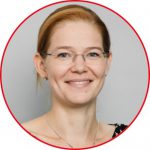
Quantum confined semiconductor nanostructures in light-driven catalysis
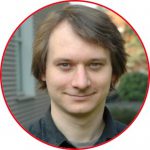
Hybrid Fibers for Nanophotonics

Supramolecular Control of Optical and Electronical Properties of Two-Dimensional Dye Layers

Label-free sensing for biomedical diagnostics
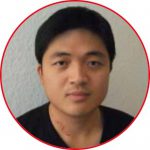
New Environment Sensitive Fluorophores with Color-Tailored Emission: In Vivo Monitoring of Carbonic Anhydrases Expression on Growth of Larval Zebrafish

Plasmonic Metasurface-Enhanced Linear and Nonlinear Processes in Two-Dimensional Semiconductors

The Nature of van der Waals Epitaxy

Empowering Bilayer MoS2 by Engineered Plasmonic Nanostructures for Optoelectronic Applications

Exploiting wave optics for infrared spectroscopy
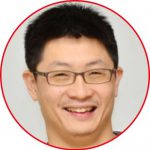
Carbodicarbene, Carbogenic Maverick, Not a Moderate!
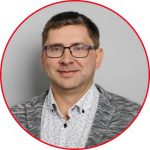
Silicon Nanostructures from Hydrogen Generation to Nanomedicine

Plasmon Enhanced Probe Spectroscopies – Structural Investigation of Nanoscale Objects

Molecular self-assembly methodology for rational construction of metallosupramolecules with high structural complexity

Toward a universal polymeric material for electrode buffer layers in organic optoelectronics

Kirigami-based soft robots with light-responsive properties

Controlling Light-matter Interactions at Nanoscale with Plasmonics: From Spontaneous Emission to Lasing
The major train connections with Deutsche Bahn to Jena are:
For timetables and tickets please visit: http://www.deutschebahn.com/en
You can purchase tickets at the train station on the day of your travel and do not necessarily have to make a reservation in advance.
The closest airport is in Leipzig-Halle (70 km away from Jena). Bigger airports are located in Berlin and Frankfurt (300 km away from Jena). Other major airports are Munich and Düsseldorf (400 kms away from Jena).
Jena can also be reached by long-distance busses from Berlin, Munich, Frankfurt and Hamburg. For timetables and tickets please visit: http://www.meinfernbus.de/en
Jena can be reached